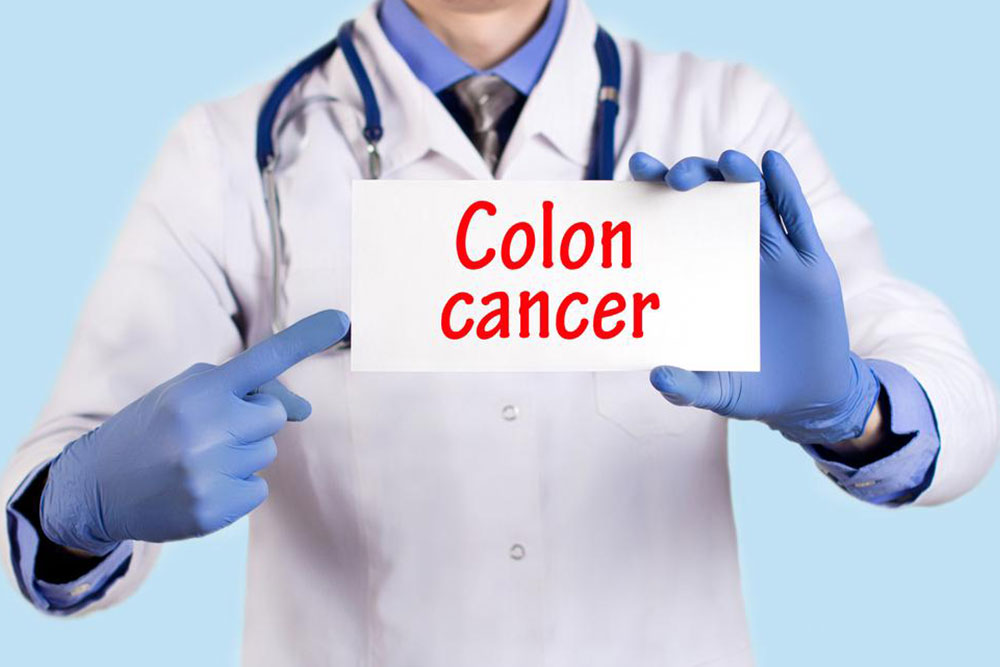Comprehensive Guide to Recognizing Early Signs of Colorectal Cancer for Better Outcomes
This detailed guide discusses the early warning signs of colorectal cancer, emphasizing the importance of recognizing symptoms such as altered bowel habits, stool changes, rectal bleeding, abdominal pain, and weight loss. Early detection through awareness and prompt medical evaluation improves treatment outcomes and saves lives. Understanding these signs enables individuals to seek timely diagnosis and intervention to combat this prevalent cancer effectively.

Comprehensive Guide to Recognizing Early Signs of Colorectal Cancer for Better Outcomes
Colorectal cancer, often referred to as colon or rectal cancer, remains one of the most prevalent types of cancer globally. Ranked as the third most common cancer worldwide, it poses significant health challenges and is a leading cause of cancer-related mortality. Despite its alarming prevalence, one of the most encouraging aspects of colorectal cancer is that early detection can dramatically improve treatment success rates and survival outcomes. Recognizing the early warning signs and symptoms linked to colorectal cancer is critical for timely diagnosis and intervention, which can ultimately save lives.
Understanding the subtle and sometimes gradual symptoms associated with colorectal cancer enables individuals and healthcare providers to act swiftly before the disease progresses to more advanced stages. Often, these symptoms develop slowly over time, but in some cases, they can emerge suddenly and cause discomfort or concern. Being vigilant about changes in bowel habits, stool appearance, and other unusual bodily sensations can lead to early testing and detection, significantly enhancing the chances of successful treatment.
In this comprehensive guide, we discuss in detail the key early symptoms of colorectal cancer, including changes in bowel habits, stool characteristics, rectal bleeding, abdominal discomfort, weight loss, anemia, nausea, tenesmus, and other signs that warrant medical attention. By understanding these signs, individuals can seek appropriate medical screening, diagnosis, and treatment promptly, improving their prognosis and quality of life.
Recognizing Altered Bowel Patterns
One of the most common early indicators of colorectal issues, including cancer, is a change in bowel habits that persists over days or weeks. These alterations include unexpected constipation, diarrhea, or both occurring without any changes in diet or lifestyle. Such shifts are often subtle at first but can become more pronounced and concerning as they persist. It is vital to monitor these changes carefully and consult a healthcare professional if they do not resolve or are associated with other symptoms.
Persistent or unexplained changes in bowel patterns can signal underlying issues, including the presence of tumors or polyps in the colon or rectum. These abnormalities may include episodes of constipation or diarrhea that are inconsistent with usual dietary habits, or a combination of both over time. Recognizing these patterns early enables timely medical evaluation, possibly leading to early detection of malignancies and better treatment outcomes.
Stool Changes as Warning Signs
Alterations in stool appearance such as color, shape, or texture are important indicators of colorectal health. Look out for stools that are thin, narrow, or ribbon-like, which could indicate a narrowing of the colon caused by a tumor. Dark stools or those with a black, tar-like appearance may suggest bleeding within the gastrointestinal tract. Although diet and other gastrointestinal conditions can cause some of these symptoms, persistent or new changes should always prompt a medical assessment to rule out serious conditions, including cancer.
Rectal Bleeding: A Critical Symptom
The presence of fresh blood on toilet paper, in the stool, or on the surface of bowel movements is often a red flag for colorectal problems. Bright red blood typically indicates bleeding from the lower digestive tract, often associated with conditions such as hemorrhoids or fissures; however, it can also be a sign of colorectal cancer, especially when combined with other symptoms such as changes in stool or abdominal pain. Any occurrence of rectal bleeding should be evaluated promptly by a healthcare provider to determine the cause and prevent potential progression of serious illness.
Persistent Abdominal Discomfort and Cramping
Ongoing, unexplained abdominal pain, cramping, or bloating may be early indicators of colon or rectal cancer. While these symptoms are also common in other gastrointestinal conditions, their persistence warrants medical investigation. Chronic discomfort may be caused by tumors obstructing the bowel or inducing inflammatory responses. Early diagnosis through imaging and other diagnostic tests can strike at the root of the problem and enable appropriate treatment.
Unintended Weight Loss
Sudden, unexplained weight loss is a concerning symptom that can be associated with colorectal cancer, especially when it occurs alongside other signs like fatigue, anemia, or changes in bowel habits. Weight loss without changes in diet or exercise should never be ignored; it signals a potential underlying health issue requiring medical evaluation. Early detection of cancer can improve the effectiveness of treatment options and significantly impact prognosis.
Anemia and Fatigue
Unexplained fatigue, weakness, and pallor may be symptoms of anemia caused by chronic blood loss from a tumor in the colon or rectum. Anemia is identified through blood tests revealing low hemoglobin levels. When combined with other symptoms such as changes in bowel habits, abdominal discomfort, or rectal bleeding, anemia can point to an early stage of colorectal cancer. Managing and treating anemia often involves addressing the underlying cause, which may include surgical removal of tumors or other therapies.
Nausea and Vomiting
Persistent nausea or vomiting without an obvious cause can be linked to bowel obstructions caused by tumor growth. These symptoms suggest that the cancer may be advanced enough to block part of the digestive tract, leading to significant health complications. Medical intervention is required to diagnose and manage such obstructive symptoms promptly, preventing further deterioration and improving overall prognosis.
The Symptom of Tenesmus
Tenesmus is characterized by a continual sensation of needing to pass stool, even when the bowel is empty. This uncomfortable feeling often indicates an underlying colorectal issue, such as a tumor or inflammation. Persistent tenesmus warrants immediate medical evaluation to determine its cause and initiate appropriate treatment, which can prevent the progression of the disease.
Recognizing Patterns in Bowel Movements
Both constipation and diarrhea can be symptoms of colorectal malignancies, particularly when they occur repeatedly or without an obvious reason. Recognizing these patterns early allows for timely medical intervention, which can be life-saving. It is essential to note any persistent or recurrent changes in bowel habits and discuss these with your healthcare provider during routine screenings or urgent consultations.
While many of these symptoms are common and can be caused by benign conditions, their persistence or sudden severity should always prompt a medical review. Early detection through screening tests like colonoscopy plays a crucial role in improving survival rates and outcomes for colorectal cancer patients. Awareness, vigilance, and proactive medical care can make the difference between early-stage treatment success and advanced disease progression.




